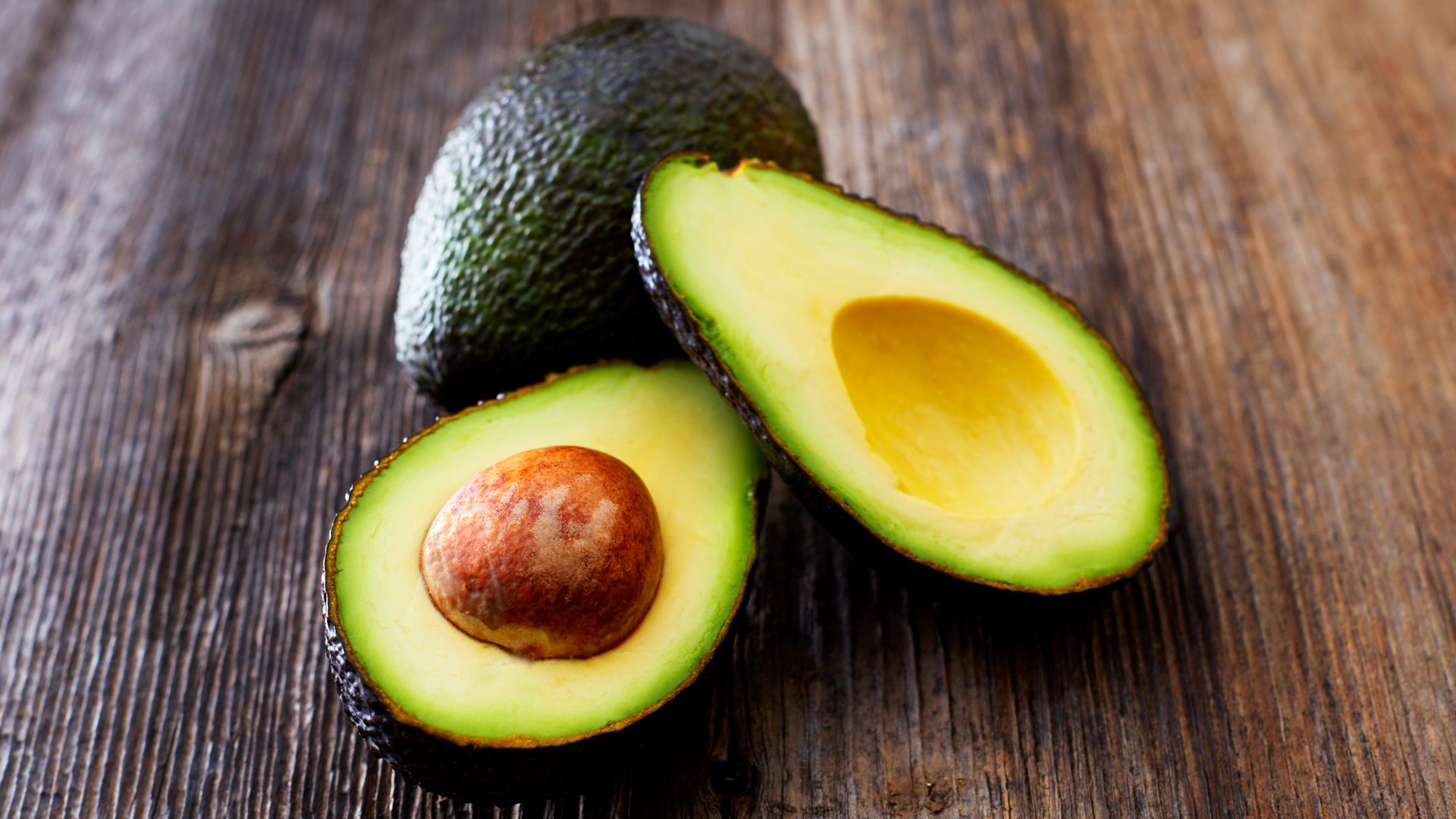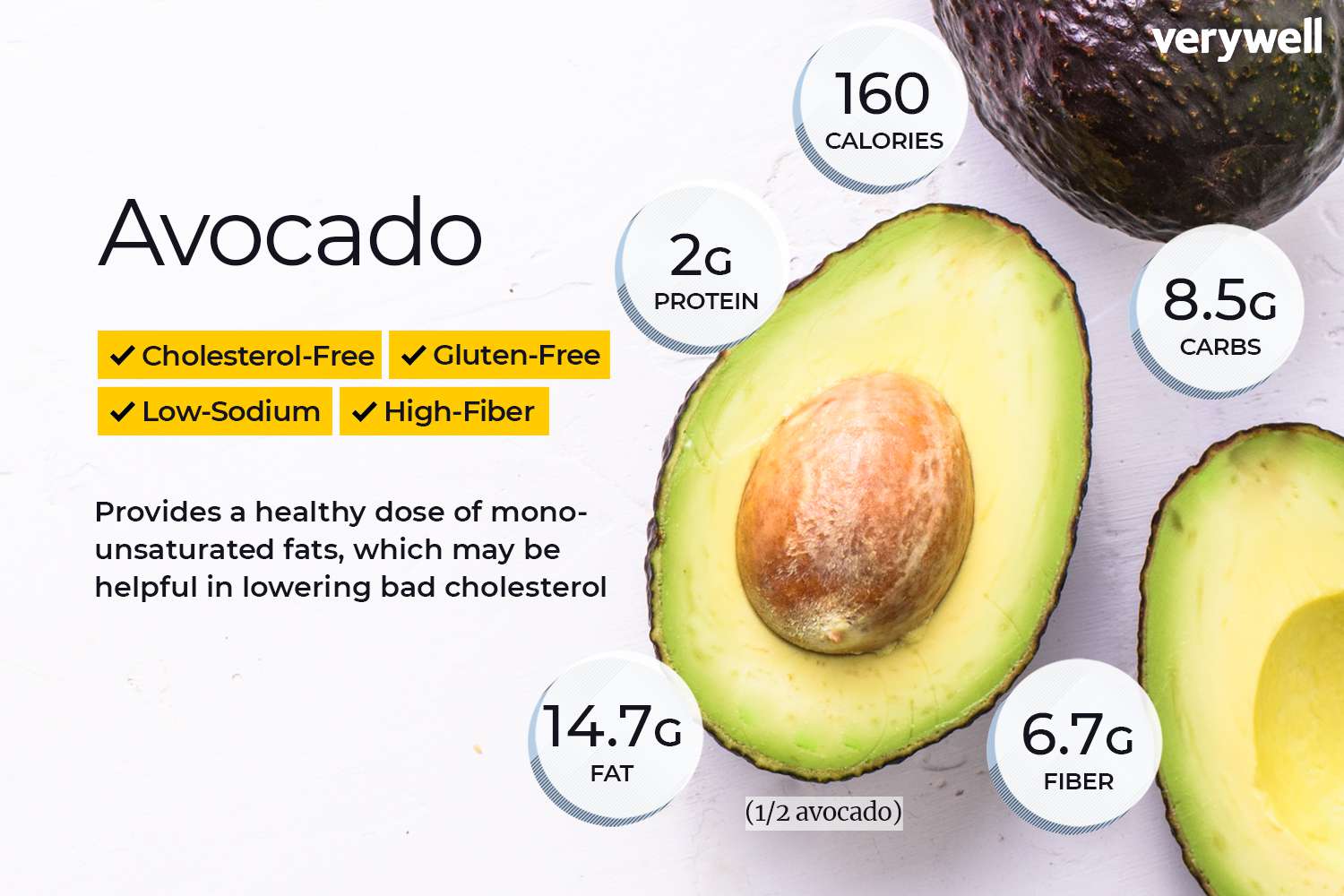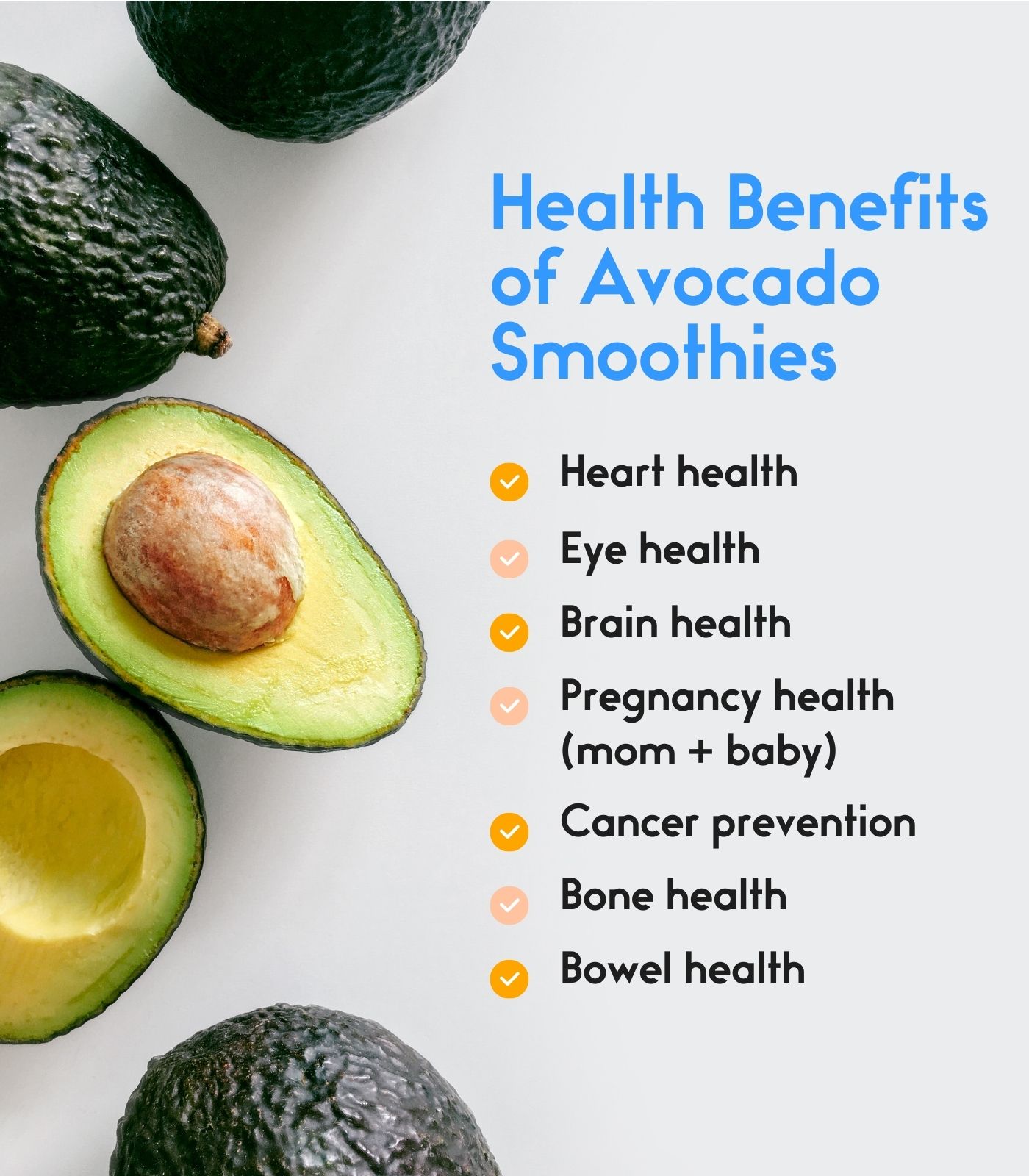Introduction to Avocados

Source: britannica.com
Avocados have earned their reputation as a superfood powerhouse, and for good reason. These creamy, versatile fruits—yes, avocados are technically fruits, specifically berries [#1]—have become a staple in kitchens worldwide. With their buttery texture and mild flavor, avocados have transcended their humble origins to become one of the most celebrated foods in modern nutrition.
What Makes an Avocado Special?
Unlike most fruits that are primarily carbohydrates, avocados stand apart with their remarkable fat content. But these aren’t just any fats—they’re predominantly monounsaturated fats, the heart-healthy kind that nutrition experts recommend. This unusual composition gives avocados their signature creaminess while delivering substantial nutritional benefits.
The green wonder contains nearly 20 vitamins, minerals, and phytonutrients in each serving. From potassium (more than bananas!) to folate, vitamin K to vitamin E, avocados pack a nutritional punch that few foods can match. Their fiber content—both soluble and insoluble—supports digestive health and helps maintain steady blood sugar levels.
Nutritional Value of Avocados
A typical serving of avocado (about one-third of a medium fruit) contains:
- 80 calories
- 8 grams of fat (primarily monounsaturated)
- 4 grams of carbohydrates
- 3 grams of fiber
- 1 gram of protein
- Significant amounts of vitamins C, E, K, and B-6
- Rich in folate, potassium, and magnesium
This nutrient density makes avocados an exceptional addition to any diet. They provide substantial nutrition without processed ingredients or added sugars, making them a whole food that aligns perfectly with contemporary nutritional guidance.
Origin and Global Production
Avocados trace their roots to Central and South America, where they’ve been cultivated for thousands of years. Archaeological evidence suggests that humans have been consuming avocados since 8000 BCE in Mexico. The name comes from the Aztec word “ahuacatl,” which later evolved into the Spanish “aguacate” and eventually the English “avocado.”
Today, avocado production has spread globally. Mexico leads world production, followed by the Dominican Republic, Peru, Indonesia, and Colombia. In the United States, California produces about 90% of the domestic crop, with Florida and Hawaii contributing smaller amounts.
The global appetite for avocados continues to grow exponentially. Annual consumption has skyrocketed in recent decades as more people discover both the culinary versatility and health benefits of this remarkable fruit. From toast to smoothies, salads to desserts, avocados have found their way into countless dishes across diverse culinary traditions.
As we explore the comprehensive nutritional profile of avocados in the next section, you’ll discover why this fruit deserves its place among the most nutritionally valuable foods available today—and how its unique combination of nutrients supports multiple aspects of human health.
Comprehensive Nutritional Profile

Source: verywellfit.com
Diving deeper into what makes avocados truly exceptional, we find a nutritional composition that few foods can rival. A complete avocado offers an impressive array of nutrients packed into its creamy flesh. A 7-ounce (201-gram) avocado contains 322 calories, 30 grams of fat, 4 grams of protein, 17 grams of carbs, and 14 grams of fiber.
Vitamins and Minerals
Avocados stand out as nutritional giants in the produce aisle, containing nearly 20 different vitamins and minerals. [#2] This impressive range makes them one of the most nutrient-dense foods available.
The vitamin content in avocados is particularly noteworthy. They’re rich in vitamins C, E, K, and B6, as well as riboflavin, niacin, folate, pantothenic acid, magnesium, and potassium. [#3] Let’s break down some of these key nutrients:
- Vitamin K: Essential for blood clotting and bone health, a whole avocado provides about 42% of your daily needs.
- Folate: Critical for cell repair and during pregnancy, avocados deliver approximately 41% of the daily recommended value per fruit.
- Vitamin C: Beyond its immune-boosting properties, this antioxidant helps with collagen formation and iron absorption.
- Vitamin E: A powerful antioxidant that protects cells from oxidative damage.
- B Vitamins: The B-complex vitamins in avocados support energy metabolism and nervous system function.
The mineral content is equally impressive. Potassium, often associated with bananas, appears in higher concentrations in avocados. This essential mineral helps regulate fluid balance, muscle contractions, and nerve signals. Magnesium, another abundant mineral in avocados, participates in over 300 enzymatic reactions in the body and supports muscle and nerve function, blood glucose control, and bone development.
Healthy Fats and Fiber
The fat profile of avocados sets them apart from most fruits. About 77% of an avocado’s calories come from fat, primarily monounsaturated fat in the form of oleic acid—the same heart-healthy fat found in olive oil. This fat composition contributes to avocados’ satiety factor, helping you feel full longer after eating.
Breaking down the fat content:
- Monounsaturated fats: Approximately 15 grams per avocado
- Polyunsaturated fats: About 3 grams
- Saturated fats: Roughly 4 grams
The fiber content in avocados deserves special attention. With about 14 grams per whole fruit, avocados provide both soluble and insoluble fiber. Soluble fiber feeds beneficial gut bacteria and can help lower blood cholesterol and glucose levels. Insoluble fiber adds bulk to stool, promoting regular bowel movements and digestive health.
This combination of healthy fats and fiber creates a powerful nutritional duo that supports digestive health while slowing the absorption of carbohydrates, helping to maintain steady blood sugar levels—a benefit similar to what you might find in nuts like almonds.
Antioxidants and Phytochemicals
Beyond the standard nutritional components, avocados contain an array of bioactive compounds that contribute to their health-promoting properties. These include various antioxidants and phytochemicals that fight oxidative stress and inflammation.
Key antioxidants and phytochemicals in avocados include:
- Lutein and Zeaxanthin: Carotenoids that accumulate in the eyes and may protect against cataracts and macular degeneration.
- Glutathione: A powerful antioxidant that helps detoxify harmful compounds in the body.
- Phenolic compounds: Including flavonoids and tannins that have anti-inflammatory properties.
- Phytosterols: Plant compounds that can help lower cholesterol absorption.
Interestingly, the greatest concentration of antioxidants is found in the dark green flesh closest to the skin, so be sure to scrape all the flesh from the peel when enjoying an avocado.
The nutritional profile of avocados becomes even more valuable when considering how these nutrients work together. For instance, the fat content enhances the absorption of fat-soluble vitamins (A, D, E, and K) and carotenoids not just from the avocado itself, but from other foods consumed alongside it. Adding avocado to a salad can significantly increase the absorption of carotenoids from the vegetables in that salad.
This comprehensive nutritional package explains why avocados have earned their superfood status. Few foods offer such a dense concentration of beneficial nutrients in a form that’s both delicious and versatile. Whether mashed on toast, blended into smoothies, or mixed with other ingredients to create creamy sauces without dairy (similar to how coconut milk might be used), avocados deliver exceptional nutrition in every bite.
Health Benefits of Avocados

Source: sandragentleman.com
The exceptional nutritional profile of avocados translates into numerous health benefits. From supporting cardiovascular function to enhancing brain health, this versatile fruit offers advantages for nearly every body system.
Heart Health
Avocados shine brightest perhaps in their contributions to cardiovascular health. The monounsaturated fats they contain play a crucial role in maintaining healthy cholesterol levels.
Research shows that regularly consuming avocados can significantly improve your lipid profile in multiple ways. They help increase heart-protective HDL (good) cholesterol while simultaneously decreasing levels of oxidized LDL cholesterol, which is particularly harmful to arterial walls.
In clinical studies, adding an avocado to daily meals improved overall lipid profiles by reducing total cholesterol and LDL while raising beneficial HDL.
Beyond their fat content, avocados contain plant sterols, particularly beta-sitosterol, which may further help maintain healthy cholesterol levels by reducing cholesterol absorption in the intestines.
Digestive Health
The fiber content in avocados—approximately 14 grams per fruit—supports digestive function in several ways:
- Promotes regular bowel movements
- Feeds beneficial gut bacteria
- Helps prevent constipation
- Reduces risk of diverticular disease
Both soluble and insoluble fiber work together to maintain digestive health. The soluble fiber acts as a prebiotic, nourishing beneficial bacteria in your gut microbiome. This can lead to improved digestion and enhanced nutrient absorption.
Weight Management
Despite their caloric density, avocados can be valuable allies in weight management efforts. Their combination of healthy fats and fiber creates a powerful satiety effect, helping you feel full longer after eating.
Studies have found that people who regularly consume avocados tend to have lower body weights and smaller waist circumferences than those who don’t. The fruit’s ability to reduce hunger and curb cravings makes it easier to maintain a calorie deficit without feeling deprived.
Eye Health
Avocados contain specific carotenoids—lutein and zeaxanthin—that accumulate in the retina and are associated with a lower risk of age-related macular degeneration and cataracts. [#4]
These compounds act as natural sunblock for your eyes, filtering harmful blue light and protecting eye tissues from oxidative damage. The fat content in avocados also enhances the absorption of these protective carotenoids, making them more bioavailable than when consumed in low-fat foods like many leafy greens.
Bone Health and Osteoarthritis Relief
The vitamin K content in avocados supports bone health by improving calcium absorption and reducing urinary excretion of calcium. This helps maintain bone density and may reduce fracture risk.
For those suffering from osteoarthritis, avocados offer anti-inflammatory compounds that may help reduce joint pain and stiffness. Extracts from avocados have been studied for their potential to slow cartilage degradation in arthritic conditions.
Cancer Prevention
Several compounds in avocados show promise in cancer prevention. Their antioxidants help neutralize free radicals that can damage cells and potentially lead to cancer development.
Specific studies have examined avocado extracts for their ability to inhibit the growth of prostate cancer cells and selectively induce apoptosis (programmed cell death) in precancerous and cancerous cells while leaving healthy cells unharmed.
Fetal and Maternal Health
Pregnant women can benefit greatly from adding avocados to their diet. The high folate content—about 41% of the daily value in one fruit—supports healthy fetal development and helps prevent neural tube defects.
Additionally, the potassium in avocados helps regulate blood pressure, which is particularly important during pregnancy. The healthy fats support fetal brain and nervous system development, while the fiber content can help alleviate pregnancy-related constipation.
Mental Health and Brain Function
The monounsaturated fats in avocados support healthy blood flow, which includes circulation to the brain. Better blood flow means more oxygen and nutrients reaching brain cells, potentially improving cognitive function.
Some research suggests that the combination of antioxidants and healthy fats in avocados may help protect against age-related cognitive decline and improve memory and processing speed.
Skin and Hair Health
Avocados benefit your appearance from the inside out. Their vitamin E content protects skin cells from oxidative damage, while their healthy fats help maintain skin elasticity and moisture. Many people also apply avocado directly to their skin and hair as natural masks and conditioners.
The vitamins C and E work synergistically to support collagen production, which keeps skin firm and reduces the appearance of fine lines. Meanwhile, the biotin content supports healthy hair growth and strength.
Anti-Inflammatory and Antimicrobial Properties
Chronic inflammation underlies many diseases, from arthritis to heart disease. Avocados contain various compounds with anti-inflammatory effects, including phytosterols and polyhydroxylated fatty alcohols.
Research has also identified antimicrobial properties in avocado seed extracts, which may help fight certain bacterial and fungal infections. While the seed isn’t typically consumed, this highlights the fruit’s broad spectrum of beneficial compounds.
Chronic Disease Prevention
The cumulative effect of avocados’ nutritional benefits translates to protection against various chronic diseases. Regular consumption has been linked to reduced risk of metabolic syndrome, type 2 diabetes, and certain cancers.
The fruit’s ability to improve insulin sensitivity, reduce inflammation, and support healthy blood lipid levels creates a protective effect against many of the most common chronic health conditions affecting people today.
Impact on Gut Health
Emerging research points to the importance of gut health in overall wellness, and avocados support a healthy gut microbiome in multiple ways. Their fiber feeds beneficial bacteria, while their fat content may help reduce gut inflammation.
A healthy gut microbiome has far-reaching effects, from improved digestion to enhanced immune function and even better mood regulation through the gut-brain axis. By supporting diverse and balanced gut bacteria, avocados contribute to whole-body health in ways we’re just beginning to understand.
The wide array of health benefits offered by avocados rivals those found in other superfoods like blueberries and pomegranates. Their unique combination of healthy fats, fiber, vitamins, minerals, and phytochemicals works synergistically to promote wellness throughout the body, making them a valuable addition to almost any dietary pattern.
Incorporating Avocados into Your Diet

Source: firstforwomen.com
Adding avocados to your daily meals isn’t just delicious—it’s a strategic nutritional move that can amplify the benefits of your entire diet. Research shows that regular avocado consumers tend to eat more vegetables, fruits, and whole grains overall, suggesting that this superfood might be a gateway to healthier eating patterns.
How to Purchase and Store Avocados
Selecting the perfect avocado requires a bit of practice. When shopping, consider when you plan to eat it:
- For immediate use: Choose avocados that yield slightly to gentle pressure and have a darker skin color
- For use in 1-2 days: Select fruits that are firm but not hard
- For use later in the week: Opt for firm, bright green avocados
To accelerate ripening, place avocados in a paper bag with an apple or banana. The ethylene gas these fruits emit speeds up the process naturally. Once ripe, refrigeration can slow further ripening for 2-3 days.
Cut avocados brown quickly due to oxidation. To preserve a half-eaten avocado, leave the pit in the unused portion, sprinkle with lemon juice, and wrap tightly with plastic wrap before refrigerating.
Preparation and Serving Suggestions
The versatility of avocados makes them suitable for almost any meal. Beyond guacamole, consider these preparation methods:
- Slice or dice for salads and grain bowls
- Mash for spreads on toast or sandwiches
- Blend into smoothies for creamy texture
- Cube for tacos, burritos, or sushi rolls
- Halve and fill with eggs, tuna, or chickpea salad
- Grill halves for a smoky flavor
Avocados can help your body absorb more antioxidants from other foods when eaten together. For instance, adding avocado to a salad increases absorption of carotenoids from carrots, spinach, and other vegetables by up to 15 times.
Delicious Avocado Recipes
Expand your avocado repertoire with these meal ideas:
Breakfast options:
- Avocado toast with poached eggs and red pepper flakes
- Green smoothie with avocado, spinach, and banana
- Breakfast bowl with avocado, quinoa, and roasted vegetables
Lunch possibilities:
- Stuffed avocado halves with tuna or chicken salad
- Avocado and black bean wrap with lime dressing
- Mason jar salad with avocado, mixed greens, and grilled chicken
Dinner creations:
- Avocado pasta sauce (blended with herbs and olive oil)
- Fish tacos with avocado slaw
- Stuffed bell peppers topped with diced avocado
Snacks and sides:
- Classic guacamole with vegetable crudités
- Avocado deviled eggs
- Avocado chocolate mousse (a surprisingly delicious dessert)
Avocado as a Substitute for Unhealthy Fats
Avocados excel as replacements for less nutritious fats in many recipes. Their creamy texture and mild flavor make them ideal substitutes in:
- Baking: Replace butter with puréed avocado (1:1 ratio) in brownies, cookies, and quick breads
- Spreads: Use instead of mayonnaise on sandwiches (saves approximately 80 calories per tablespoon)
- Dressings: Blend with vinegar, herbs, and a touch of oil for creamy salad dressings
- Desserts: Create dairy-free ice creams and puddings using avocado as the base
The fat in avocados provides similar texture and mouthfeel to dairy and oil-based ingredients while delivering superior nutritional value. This makes avocados particularly valuable for those transitioning to plant-based eating patterns or reducing saturated fat intake.
For those concerned about calories, portion control is key. A quarter of an avocado (about 80 calories) provides substantial nutritional benefits and can satisfy cravings for richness in meals. This moderate approach allows you to enjoy avocados daily without exceeding calorie goals.
Whether you’re looking to boost your intake of heart-healthy fats or simply add more flavor and texture to your meals, avocados offer remarkable culinary flexibility. Their ability to complement both sweet and savory dishes, function as both ingredient and garnish, and enhance the nutritional profile of almost any meal makes them a standout addition to health-conscious kitchens.
Common Questions and Concerns
As avocados have risen to superfood status, they’ve also generated numerous questions about their consumption, benefits, and potential drawbacks. Let’s address some of the most frequently asked questions about this nutrient-dense fruit.
Is it OK to Eat an Avocado Every Day?
For most people, eating an avocado daily can be a healthy dietary choice. Research suggests that consistent avocado consumption supports heart health, improves digestion, and enhances nutrient absorption from other foods. The key is moderation—a whole avocado contains about 250-320 calories, so adjust your portion size according to your overall caloric needs.
Daily avocado eaters often report improved satiety between meals, which may help prevent unhealthy snacking. The combination of healthy fats and fiber creates a lasting feeling of fullness that few other foods provide.
Are Avocados High in Calories?
Yes, avocados are relatively calorie-dense compared to many other fruits and vegetables. A medium avocado (about 150g) provides approximately 240 calories. However, these calories come with exceptional nutritional value:
- Heart-healthy monounsaturated fats
- Nearly 10 grams of fiber
- More potassium than a banana
- Significant amounts of vitamins K, E, C, and B-complex
Rather than avoiding avocados due to calorie concerns, consider adjusting portion sizes. A quarter or half avocado delivers substantial nutritional benefits while keeping calories in check. The quality of calories matters as much as the quantity—avocado calories support bodily functions and provide lasting energy.
Do Avocados Help Burn Belly Fat?
While no single food can target specific fat deposits, avocados may support overall weight management in several ways:
- Their fiber content promotes fullness and reduces overeating
- The healthy fats slow digestion, stabilizing blood sugar and reducing cravings
- Avocados have a low glycemic index of about 40, meaning they’re less likely to cause blood glucose spikes that can lead to fat storage
Research published in the Journal of Nutrition found that women who consumed avocado as part of a meal experienced greater satisfaction and reduced desire to eat for up to five hours afterward. This appetite-suppressing effect may indirectly support weight loss efforts, including reduction of abdominal fat.
Are There Any Risks Associated with Eating Avocados?
For most people, avocados pose minimal risks. However, certain considerations apply:
- Caloric density: Overconsumption without accounting for calories may contribute to weight gain
- Medication interactions: The high vitamin K content may interfere with blood-thinning medications like warfarin
- Digestive sensitivity: Some individuals with irritable bowel syndrome may find that high-fat foods, including avocados, trigger symptoms
- Environmental concerns: Avocado farming has been linked to water usage issues and deforestation in some regions
These potential drawbacks rarely outweigh the benefits for most consumers. Consulting with a healthcare provider about specific health conditions can help determine if any adjustments to avocado consumption are warranted.
Avocados and Allergies
Avocado allergies, while uncommon, do exist and typically manifest in two forms:
- Oral Allergy Syndrome: People allergic to birch pollen may experience itching or swelling in the mouth and throat when consuming avocados due to cross-reactivity between proteins
- Latex-Fruit Syndrome: Those with latex allergies may react to avocados because of similar allergenic compounds
Symptoms of avocado allergy range from mild (itching, hives) to severe (difficulty breathing, anaphylaxis). Anyone experiencing adverse reactions should seek medical attention and consider allergy testing.
For those with mild sensitivities, cooking avocados sometimes reduces allergenic properties, though this also alters their nutritional profile and taste. Completely avoiding avocados and related foods may be necessary for individuals with severe reactions.
Blood Sugar Considerations
Contrary to concerns about their carbohydrate content, avocados are remarkably diabetes-friendly. With a low glycemic index of approximately 40, they produce minimal blood sugar fluctuations after consumption.
The combination of healthy fats, fiber, and minimal digestible carbohydrates makes avocados an excellent choice for blood sugar management. Some research suggests that adding avocado to carbohydrate-rich meals may help blunt the glycemic response, potentially benefiting those with insulin resistance or diabetes.
The monounsaturated fats in avocados may also improve insulin sensitivity over time, making them a valuable addition to diets focused on metabolic health. Their ability to promote satiety without spiking glucose levels positions avocados as a smart choice for anyone monitoring their blood sugar.
Conclusion
The Bottom Line on Avocado Nutrition
Avocados stand as a nutritional powerhouse that delivers an impressive array of health benefits in a delicious package. From their heart-protective monounsaturated fats to their wealth of vitamins, minerals, and fiber, these green gems offer nutrition that few foods can match.
The research supporting avocado consumption continues to grow, highlighting benefits that extend to nearly every body system:
- Cardiovascular protection through improved lipid profiles
- Enhanced digestion and gut health from soluble and insoluble fiber
- Better weight management through increased satiety
- Reduced inflammation throughout the body
- Support for skin, hair, and eye health
- Potential protection against certain cancers and chronic diseases
While avocados do contain more calories than many fruits and vegetables, their nutritional density makes them worth incorporating into a balanced diet. The key lies in portion awareness—enjoying avocados regularly while adjusting serving sizes to align with your personal health goals and caloric needs.
For those concerned about blood sugar, avocados offer a rare combination of satisfying fats with minimal impact on glucose levels. This makes them appropriate for almost everyone, including those managing diabetes or metabolic conditions.
Beyond Personal Health
As we embrace avocados for their nutritional benefits, it’s worth considering their broader impact. Supporting sustainable avocado farming practices helps address environmental concerns while still allowing us to enjoy this remarkable fruit. Looking for locally grown options when available or choosing producers with strong environmental commitments can make avocado consumption more aligned with ecological values.
The versatility of avocados also deserves recognition. From breakfast to dinner, sweet to savory applications, few foods transition so seamlessly across culinary boundaries. This adaptability makes maintaining healthy eating patterns more enjoyable and sustainable long-term.
Final Thoughts
Avocados represent what nutrition experts increasingly recommend—whole foods that provide multiple nutrients in their natural form. Rather than focusing on isolated vitamins or supplements, incorporating nutrient-dense whole foods like avocados offers synergistic benefits that science is still uncovering.
Whether spread on toast, blended into smoothies, or featured in salads, avocados deliver nutrition that supports wellness from the inside out. Their combination of essential nutrients, healthy fats, and protective compounds makes them truly worthy of their superfood status.
For most people, making avocados a regular part of meals represents a simple yet powerful dietary choice that can contribute to both immediate satisfaction and long-term health. In the landscape of nutrition, few foods offer such a favorable balance of taste, versatility, and comprehensive health benefits as the humble yet extraordinary avocado.
References
- 1. 7 Potential Health Benefits of Avocado
https://www.healthline.com/nutrition/avocado-nutrition - 2. Health Benefits of Avocados: Are They Good For You?
https://www.health.com/nutrition/avocado-health-benefits - 3. The Avocado: A Superfood with Incredible Health Benefits
https://www.rosellakpt.com/blog/the-avocado-a-superfood-with-incredible-health-benefits - 4. Avocados – The Nutrition Source
https://nutritionsource.hsph.harvard.edu/avocados/